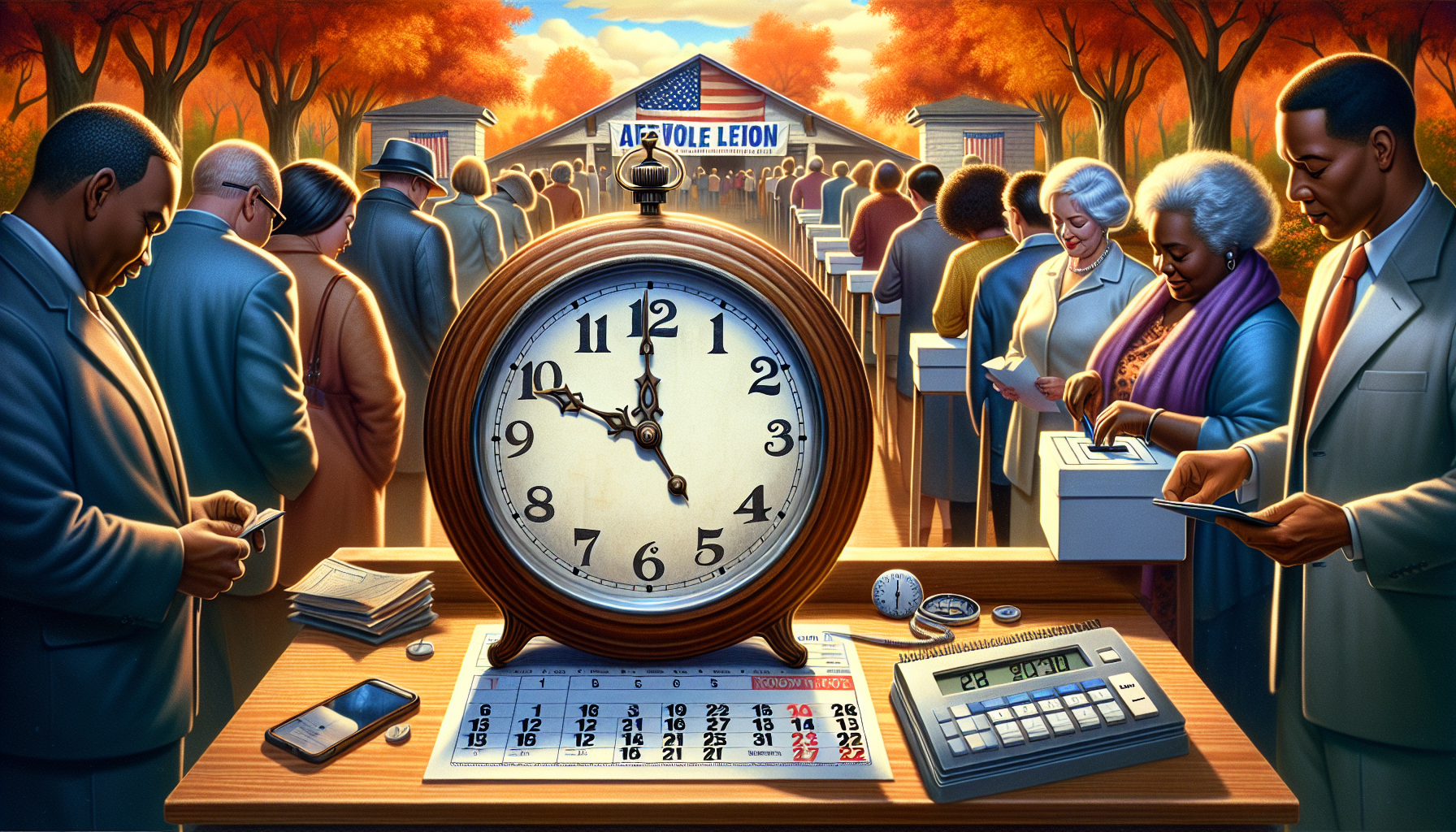Since 2007, the end of daylight saving time has come the Sunday before U.S. elections in November, putting Election Day two days after the time change. Research links the fall switch to short‑term upticks in depression and shifts in road safety; studies of turnout show small, context‑dependent effects.
In 2005, Congress voted to extend daylight saving time by starting it earlier in March and ending it later in November; the change took effect in 2007. As a result, daylight saving time now ends on the first Sunday in November, one week later than before—an adjustment often described as partly influenced by retailers and Halloween‑aligned interests. In an NPR interview, author Michael Downing recounted that candy makers lobbied for Halloween to fall during daylight saving and once placed candy pumpkins on senators’ seats during 1985 hearings. (timeanddate.com)
By federal statute, general elections are held on “the Tuesday next after the first Monday in November.” Because the clock change now occurs on the preceding Sunday, Election Day in presidential years since 2008 has consistently fallen two days after the time shift. (law.cornell.edu)
Health researchers have found short‑term mental health effects following the autumn switch to standard time. A Danish time‑series study using national psychiatric data reported an 11% increase in hospital contacts for unipolar depressive episodes in the weeks after the fall change, with no parallel spike in spring. Sleep‑medicine groups, meanwhile, warn that misalignment between social clocks and sunlight can worsen sleep and mood, and many advocate ending seasonal clock changes in favor of permanent standard time. (journals.lww.com)
Road‑safety effects vary by season. The spring “forward” is associated with a roughly 6% rise in fatal crashes during the following workweek, consistent with sleep loss. After the fall change, recent analyses find pedestrian and bicyclist fatalities increase during darker evening hours even as some motor‑vehicle‑occupant fatalities decrease, underscoring that earlier darkness shifts risk rather than eliminating it. (sciencedaily.com)
What does the timing mean for voter turnout? Prior to the 2007 schedule change, Iowa State University political scientist Robert Urbatsch reported in American Politics Research (as summarized by Pacific Standard) that turnout was modestly higher when elections fell two days after the switch back to standard time—an effect he attributed to extra sleep. The literature also shows that poor weather can suppress participation and, at the margins, tilt outcomes toward Republicans, though the growth of early and mail voting may blunt day‑of‑conditions effects. (psmag.com)
More broadly, a growing body of research links despair and certain mental‑health burdens to lower civic participation, especially in vulnerable communities, though findings vary by measure and context. Recent work associates higher levels of “despair” with reduced turnout, and earlier studies found depressed mood is correlated with lower voting, while other scholarship notes mixed effects across forms of participation. (pubmed.ncbi.nlm.nih.gov)
Policy remedies remain unsettled. Congress experimented with year‑round daylight saving time in 1974 but rolled it back amid safety concerns about dark winter mornings. In 2022, the U.S. Senate unanimously passed the Sunshine Protection Act to make daylight saving time permanent, but it stalled in the House; renewed efforts have continued to face resistance over whether the nation should choose permanent daylight time or permanent standard time. Sleep‑medicine groups favor permanent standard time on health grounds, while others emphasize evening‑light benefits. (congress.gov)

